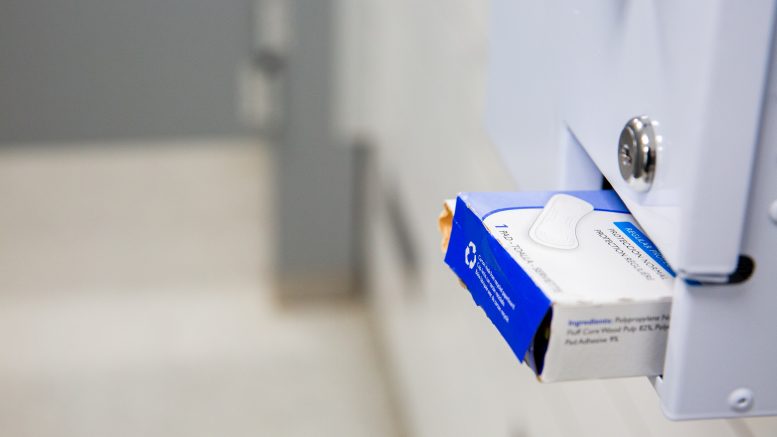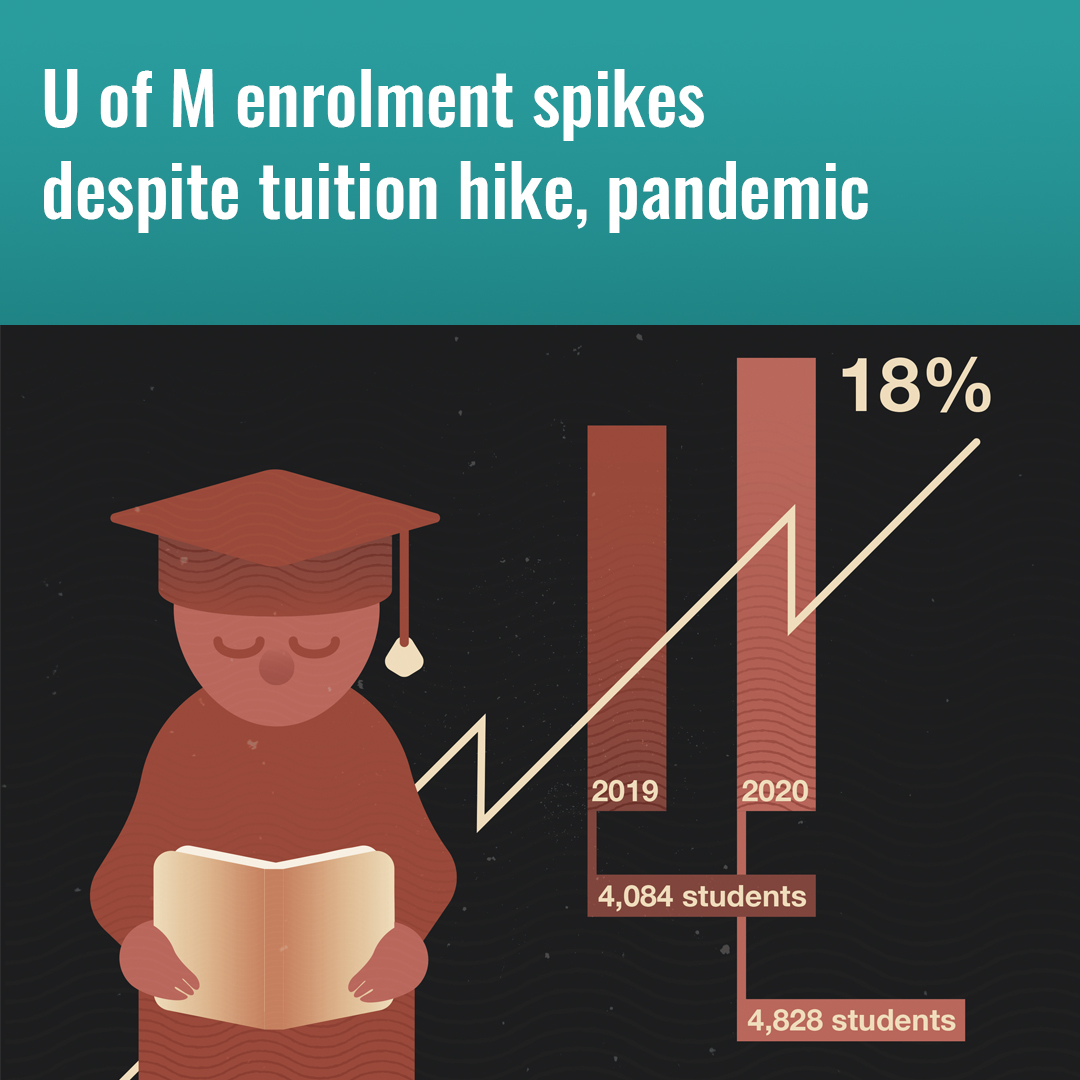Periods are a fact of life.
They are a basic human biological function for nearly half the world’s population.
However, many individuals face challenges in accessing basic necessities to manage menstruation due to financial or other constraints. This is known as period poverty.
U of M assistant professor in the faculty of social work Lindsay Larios emphasized the growing interest in overcoming these challenges, both within the U of M community and at the government level, and highlighted the need to approach it as an issue of equity.
“We’ve identified this as a really crucial moment to assess what the available resources are,” she said, “and consider kind of a wider justice-based model for thinking about how we distribute menstruation products and how this might be affecting students, but also other community members.”
Through a menstrual justice lens, various social structures like socioeconomic status, gender identity, cultural identity and race shape responses to menstruation, and inequities can increase period poverty for different marginalized groups.
“It’s something we want everyone to have equal access to,” Larios said.
“This is a basic human bodily need that roughly half the population has to deal with,” she continued.
“Given the challenges that we’ve heard about and we’ve seen in the research around how lack of access to menstrual products affect people, we really feel like this is an issue of equity and equality and needs a justice-type response.”
Larios’s work has always focused on reproductive policies and justice.
After UMSU, in collaboration with the U of M vice-provost (students), announced its pilot project aimed toward combating period poverty back in February, Larios grew interested in the different challenges U of M students faced.
In a one-year project funded by the U of M’s Strategic Initiatives Support Fund, Larios, alongside director of the Centre for Human Rights Research Adele Perry and assistant professor in labour studies Julia Smith, is part of a team that seeks to address the accessibility of menstrual products across the U of M’s Fort Garry campus, Bannatyne campus and William Norrie Centre by identifying barriers and advocating for equitable solutions.
“We are hoping that, in our workshops and our panels that we’re able to organize, we’ll be able to bring in some community folks to kind of share their experiences as well,” Larios said.
To kick-start the project, Larios explained that a comprehensive audit will be conducted across the various campuses. Alongside a team of students, the project team will physically inspect washrooms to assess both the availability and accessibility of menstrual supplies.
Larios noted that this audit, which considers factors such as the presence of supplies, their accessibility and whether they are functional, will shed light on the current state of menstrual supply access for the U of M community and beyond.
Additionally, the project will involve conducting a literature review on menstrual justice in Canada. This review will explore existing policies that facilitate access to menstrual products and identify the barriers faced by students.
Documenting these gaps in menstrual supply access on campus could help different faculties at the U of M in promoting period equity.
“There’s still kind of a lack of awareness of where to get these products,” Larios said.
“They’re not available in every building, knowing what centres to get them at, those kinds of things.”
Larios hopes the project will raise awareness and promote a more holistic approach to addressing menstrual equity.
Various events, including public discussions, student-focused workshops and arts-based activities, are going to be organized to encourage participation, allow for the sharing of experiences and combat the stigma associated with menstruation.
As the project progresses, Larios believes it will shine a spotlight on the importance of menstrual equity and spur action toward achieving a more just and inclusive campus, where individuals of all genders have equal access to menstrual products and support.





